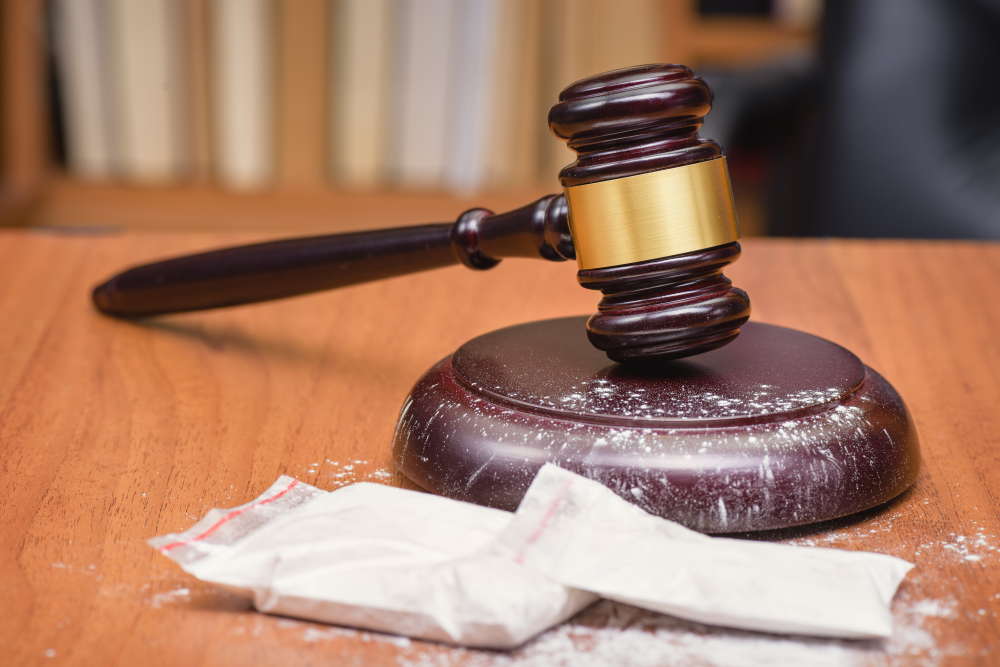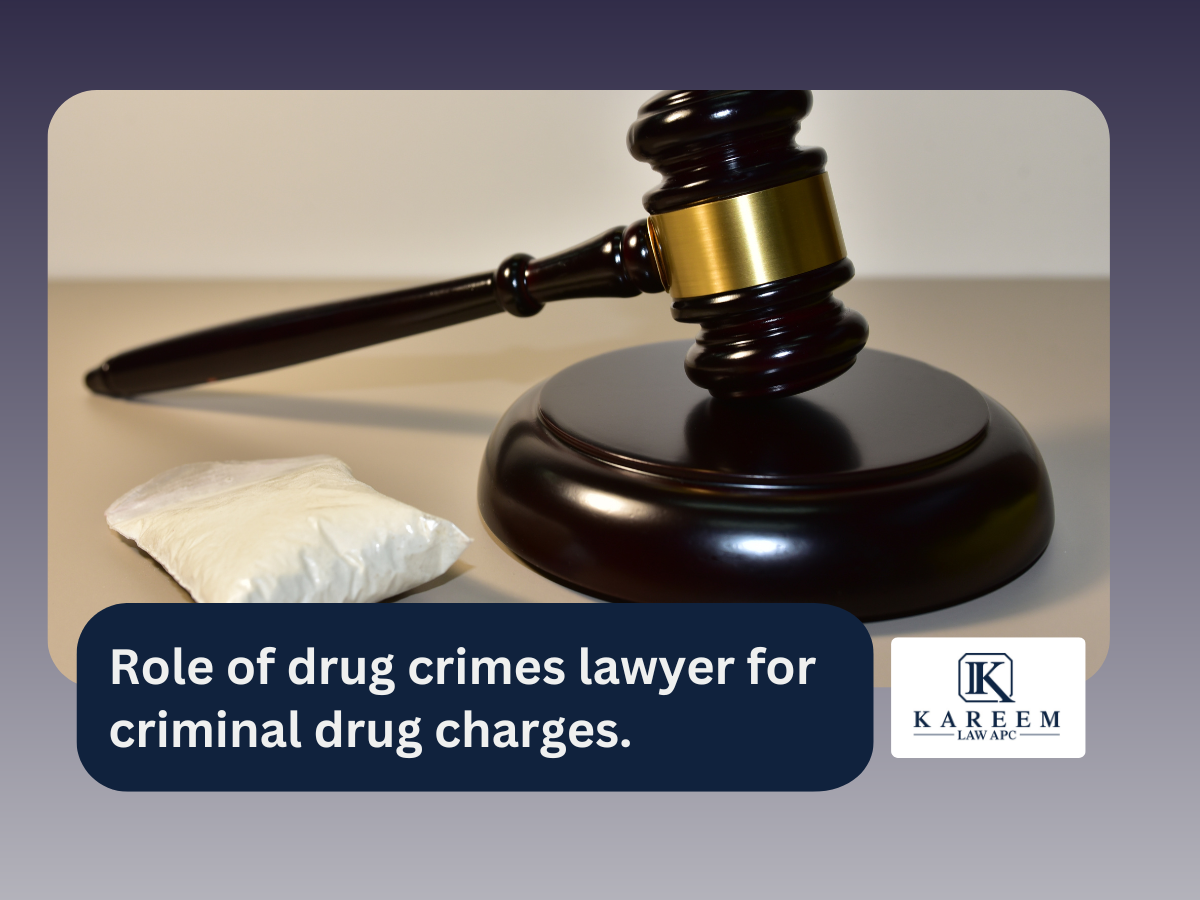Drug crime lawyer expertise is essential when navigating the complicated world of drug-related offenses, where the stakes are high and the consequences can be life-altering. Whether you’re facing charges for possession, trafficking, or manufacturing, having a dedicated legal ally can make all the difference in your case.
Understanding drug crime laws means knowing the distinctions between federal and state regulations, the typical penalties for various offenses, and the importance of strong defense strategies. From arrest to court resolution, a skilled drug crime lawyer guides clients through every stage, ensuring their rights are protected and every legal avenue is explored.
Overview of Drug Crime Laws
Drug crime laws are a complex and evolving aspect of the legal system, with significant differences between jurisdictions. Understanding these laws is critical for anyone involved in drug-related legal proceedings, as the type of offense, governing legislation, and applicable penalties can vary widely.
Drug crimes generally fall under specific statutes that address the possession, distribution, manufacture, and trafficking of controlled substances. Legislation such as the Controlled Substances Act (CSA) in the United States serves as the federal framework, while many states and countries have their own detailed regulations tailored to regional concerns. The interplay between federal and state laws often determines how a case is prosecuted and what penalties may be imposed.
Main Types of Drug Crimes and Relevant Legislation, Drug crime lawyer
Drug crime offenses can be broadly categorized, each with its own set of legal implications. Below is a summary of the most common types, along with the legislation typically involved:
- Possession of controlled substances (personal use or intent to distribute)
- Drug trafficking (transporting, selling, or distributing drugs)
- Manufacturing or cultivation of drugs (producing illegal substances or growing prohibited plants)
- Prescription fraud (illegally obtaining prescription medications)
- Possession of drug paraphernalia (items used to consume or distribute drugs)
Federal drug crimes are often prosecuted under the CSA, while state-level offenses are governed by local statutes, which may offer alternative penalties or diversion programs.
Federal Versus State Drug Laws
The distinction between federal and state drug laws plays a major role in legal proceedings. Federal cases generally involve larger quantities, interstate activity, or offenses committed on federal property. In contrast, state prosecutions often deal with lower-level offenses or first-time offenders. The choice of jurisdiction impacts sentencing severity, eligibility for parole, and available defenses.
Potential Penalties for Drug Offenses

Penalties for drug crimes vary based on the type and quantity of the substance, prior criminal history, and aggravating factors such as involvement of minors. Common penalties include:
- Fines ranging from hundreds to millions of dollars
- Probation or supervised release
- Mandatory drug treatment programs
- Imprisonment, with sentences from several months to life
- Asset forfeiture and loss of professional licenses
Sentencing guidelines can be particularly harsh at the federal level, especially for trafficking and manufacturing offenses, but some jurisdictions have adopted drug courts or rehabilitation-focused alternatives.
Role and Responsibilities of a Drug Crime Lawyer
A drug crime lawyer plays a vital role in protecting the rights of individuals accused of drug-related offenses. Their responsibilities span from initial legal advice through trial defense and potential appeals, offering clients both legal guidance and emotional support during a challenging time.
These lawyers must stay up-to-date with legislative changes, court decisions, and procedural rules to provide the best defense possible. They are responsible for evaluating evidence, developing case strategies, and ensuring that their clients’ rights are not violated throughout the legal process.
Primary Functions and Services Provided
Drug crime lawyers offer a range of services tailored to the unique aspects of each case. The following table Artikels their main roles and the benefits to clients:
| Services Provided | Client Benefits | Common Case Types | Legal Strategies |
|---|---|---|---|
| Case Assessment and Advice | Clear understanding of options and risks | Possession, trafficking, manufacturing | Plea negotiations, diversion programs |
| Evidence Review and Investigation | Identifies procedural errors or rights violations | All drug offenses | Suppression motions, exclusion of evidence |
| Court Representation | Professional advocacy in hearings and trials | Felony & misdemeanor drug cases | Cross-examination, constitutional defenses |
| Negotiation with Prosecutors | Reduced charges or favorable plea deals | First-time offenders, low-level offenses | Plea bargaining, deferred adjudication |
Legal Challenges in Drug Crime Cases

Drug crime cases often involve unique legal and evidentiary challenges. Examples include:
- Challenging the legality of a search or seizure under the Fourth Amendment
- Questioning the chain of custody for evidence to prevent tampering claims
- Addressing the reliability of informant testimony or witness statements
- Navigating mandatory minimum sentencing laws that limit judicial discretion
Successfully overcoming these challenges can lead to reduced penalties, case dismissal, or acquittal.
Confidentiality and Ethical Considerations
Maintaining client confidentiality is a fundamental duty for all defense lawyers. Ethical representation includes preserving privacy, avoiding conflicts of interest, and ensuring honest, transparent communication at all stages of the case. Clients should feel confident that their lawyer is acting solely in their best interests, regardless of public opinion or personal beliefs.
Steps in the Criminal Justice Process for Drug Charges
The criminal justice process for drug charges involves several key stages, from arrest to final court resolution. Understanding each step helps defendants and their families anticipate what to expect and make informed decisions about their defense.
During each stage, the involvement of a skilled lawyer can make a significant difference in the case outcome, whether through negotiating pre-trial resolutions or arguing for the exclusion of unlawfully obtained evidence.
Procedural Checklist: Pre-Trial, Trial, and Post-Trial Stages
The following checklist Artikels the major procedural steps typically encountered in drug crime cases:
- Arrest and booking by law enforcement
- Initial appearance and bail hearing
- Arraignment and formal charges
- Discovery phase and evidence review
- Pre-trial motions (such as to suppress evidence or dismiss charges)
- Plea negotiations and potential plea agreements
- Trial preparation and witness interviews
- Jury selection (if applicable)
- Trial proceedings (presentation of evidence, cross-examination)
- Verdict and sentencing
- Post-trial motions or appeals
Significance of Evidence Collection and Pre-Trial Motions
Evidence collection is critical in drug cases, as the prosecution’s ability to prove possession, intent, or distribution hinges on the admissibility and reliability of physical and testimonial evidence. Pre-trial motions allow the defense to challenge the legality of searches, the introduction of specific evidence, or procedural errors that could impact the fairness of the trial.
Plea Bargains and Their Outcomes
Plea bargains are a common resolution in drug cases, offering the possibility of reduced charges or lighter sentences in exchange for a guilty plea. Lawyers negotiate these deals with prosecutors, weighing the strength of the evidence and the risks of trial. While a plea bargain can provide certainty and mitigate sentencing, it may also require the defendant to forgo certain rights, such as an appeal.
Plea bargains can resolve cases more quickly and with less risk, but defendants should always consult with their lawyer to fully understand the long-term consequences before agreeing to any deal.
Final Wrap-Up

In summary, working with a knowledgeable drug crime lawyer offers critical support in facing complex legal challenges, from understanding the nuances of drug legislation to building a strong defense. With the right legal guidance, individuals have a better chance to protect their future and navigate the justice system with confidence.
General Inquiries: Drug Crime Lawyer
What does a drug crime lawyer do?
A drug crime lawyer defends individuals accused of drug-related offenses, provides legal advice, negotiates plea deals, and represents clients in court to ensure their rights are protected.
How much does it cost to hire a drug crime lawyer?
Costs vary depending on the lawyer’s experience, case complexity, and location, but initial consultations are often free and fee structures should be discussed upfront for transparency.
Can a drug crime lawyer help get charges reduced or dismissed?
Yes, an experienced lawyer can often negotiate with prosecutors, challenge evidence, or find legal defenses that may result in reduced charges or even dismissal.
Is it necessary to hire a lawyer if I’m innocent?
Even if you believe you are innocent, having a lawyer is crucial to protect your rights, ensure proper legal procedures are followed, and provide the best possible defense.
What should I bring to my first meeting with a drug crime lawyer?
Bring any documents related to your arrest, court notices, bail paperwork, and a list of questions or concerns about your case to help the lawyer understand your situation.
